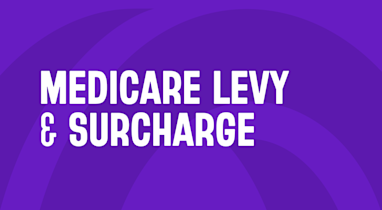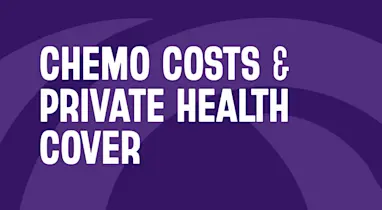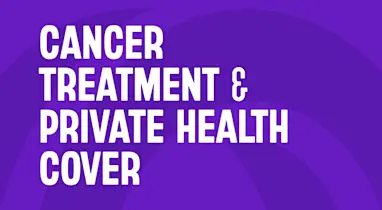quote
What Is The Best Health Insurance for a 482 Visa Holder?
Are you coming to Australia on a 482 visa? Then you might need to buy 482 visa health insurance as part of your visa requirements.
Private health insurance typically provides more comprehensive medical coverage than Australia’s public healthcare system – Medicare – and may protect you from costly out-of-pocket expenses.
Key Points
If your country of origin does not have a Reciprocal Health Care Agreement (RHCA) with Australia, you MUST hold private health insurance.
If your country of origin does have a RHCA with Australia, you may be eligible for Medicare. However, purchasing private health insurance may provide more comprehensive coverage.
The experts at Compare Club can help you compare health insurance for 482 visa to find a policy that’s right for you.
Embarking on a journey to Australia with a Temporary Skills Shortage (TSS) 482 visa is an exciting endeavour, and ensuring you have the right health insurance is a crucial aspect of your relocation. This comprehensive guide aims to shed light on the intricacies of health insurance for 482 visa holders, providing insights into the Medicare system, Overseas Visitor Health Cover (OVHC), and the various options available.
Compare OVHC InsuranceIs a 482 visa the same thing as a Temporary Skills Shortage (TSS) visa?
The Temporary Skills Shortage (TSS) visa is now known as the Skills in Demand (SID) visa (subclass 482). It enables Australian employers to bring skilled overseas workers to Australia in cases where they can’t find an Australian worker with the necessary skills. To be eligible for a SID 482 visa you must:
Be nominated to work in an occupation on the Core Skills Occupation List (CSOL)
Have at least one year of relevant work experience
Work only for your sponsor employer (or an associated entity)
Meet minimum English language standards (exemptions may apply)
Learn more about health insurance with these guides
Does my 482 visa require me to maintain private health insurance, or can I rely solely on Medicare?
If you’re from a country with a Reciprocal Health Care Agreement (RHCA) with Australia, you may be eligible for Medicare.
Australia currently has RHCAs with:
United Kingdom
Republic of Ireland
New Zealand
Sweden
The Netherlands
Finland
Belgium
Norway
Slovenia
Malta
Italy
ALERT!
If your country of origin doesn’t have an RHCA with Australia, then you must take out private health insurance as part of your visa application.
What does Medicare cover as part of an RHCA?
Under an RHCA, Medicare generally covers emergency treatments in a public hospital.
However, under an RHCA, Medicare typically does not cover:
Elective surgery or non-essential treatment
Private patient treatment in a hospital
Extras such as dental and optical treatment
Medical evacuation
So it can be a good idea for SID 482 visa holders from RHCA countries to take out private health insurance for more comprehensive protection.
What happens if I don’t maintain adequate health insurance while on a 482 visa?
If your country of origin doesn’t have an RHCA with Australia and you let your SID 482 visa health insurance lapse, your visa could be cancelled.
You may also have difficulties renewing your visa if you can’t prove continuous health coverage. And without adequate health insurance, you’ll likely need to pay for any medical treatments you need out of your own pocket, which can be very expensive in Australia.
What are the best options for 482 visa health insurance in Australia?
Overseas Visitor Health Cover (OVHC) is designed for temporary residents like SID 482 visa holders. While the terms of OVHC policies may differ between insurers, OVHC typically provides coverage for medically-required hospital treatments and a portion of doctor’s fees.
General Treatment cover is an add-on you can buy that typically pays benefits towards out-of-hospital extras treatments like dental and physiotherapy.
Does my partner or family also need OVHC if travelling with me on my 482 visa?
Yes, if your partner or family members are travelling to Australia with you via your SID 482 visa, they will likely need OVHC (unless your country of origin has an RHCA in place with Australia).
There are specific OVHC policies typically available to cover couples or families, so you should be able to cover all family members travelling with you on one OVHC policy.
When do I need to buy OVHC for my 482 visa?
You generally need to purchase OVHC before your SID 482 visa is granted.
That’s because Australia’s Department of Immigration and Border Protection (DIBP) typically requires a confirmation letter or certificate from your insurer and/or employer as part of the visa application process.
Compare OVHC InsuranceAre there waiting periods for OVHC?
Most OVHC policies apply waiting periods for certain conditions. That means you need to hold the policy for a certain amount of time before you can make a claim. The following waiting periods generally apply to OVHC policies, however you should always check with the insurer before signing up.
Condition | Waiting period |
Psychiatric | 2 months |
Rehabilitation | 2 months |
Palliative | 2 months |
Pregnancy | 12 months |
12 months |
*Typically any medical condition of which you showed symptoms in the six months before your visa was approved, or before you arrived in Australia.
How do I find OVHC insurance for 482 visa holders?
Keep in mind that not all OVHC policies are the same. Some may exclude certain treatments, waiting periods might vary depending on the insurer, and some policies may not cover pre=existing conditions.
That’s why assessing OVHC insurance by premiums alone may not be the best gauge. Cheaper policies could exclude essential treatments and leave you high and dry when you need it.
On the other hand, overpaying for coverage you don’t need could take a bite out of your budget you can’t afford.
The experts at Compare Club make it easy to compare health insurance for 482 visa so you can find the right policy for your personal situation.
Compare OVHC InsuranceWant to find a good value health insurance policy that meets your needs? Compare Club’s experts have saved over 239,000 Australians an average of $295* by helping them compare health cover in the last 10 years.
What's new in health insurance?
Biggest hike in years: Health insurance premiums will rise by an average of 4.41% on April 1 — the largest hike since 2018 and noticeably higher than last year’s increase of 3.73% (in 2025).
Most Aussies face higher hikes: Compare Club’s data suggests that due to the five largest funds holding nearly 80% of the market, the average increase for the majority of policyholders is closer to 5.00%.
Review your policy: Now’s the time to check if your policy still fits—better deals could be available.
#Compare Club compares selected products from a panel of trusted insurers and does not compare all products in the market.
Sources
PrivateHealth.govMy Access Australia
*$295 based on 239,107 sold over the past 10 years (From 2015 to 2024).
Things You Should Know
*As our customer you'll be provided with quotes directly from the insurer for the product you intend to purchase. We manage the application and deal with the administration work and insurer. We do not charge you a fee for the service we provide, the insurer simply remunerates us in return for setting up your policy. The financial and insurance products compared on this website do not necessarily compare all features that may be relevant to you. Comparisons are made on the basis of price only and different products may have different features and different levels of coverage. Compare Club does not compare all policies available in Australia and our partner insurers may not make all policies available to Compare Club.
This guide is opinion only and should not be taken as medical or financial advice. Check with a financial/medical professional before making any decisions.
Chris Stanley is the sales & operations manager of health insurance at Compare Club. With extensive experience and expertise, Chris is a trusted leader known for his deep understanding of health insurance markets, policies, and coverage options. As the sales & operations manager of health insurance, Chris leads a team of dedicated professionals committed to helping individuals and families make informed decisions about their health insurance needs.

Meet our health insurance expert, Chris Stanley
Chris's top health insurance tips:
- 1
Australia’s public health system is world-class, but wait times for public hospitals can be long, inconvenient - and leave you living in constant pain while you wait.
- 2
An appropriate private health insurance policy can speed up your surgery, relieving your pain sooner.
- 3
Family health cover means your children are covered under the same policy as you.
- 4
Many health insurance policies come with a 12-month waiting period for pregnancy-related cover, so it’s a good idea to get a family policy organized well before starting your family. This means your child will be covered from birth until at least their early twenties (depending on which health fund you select).




